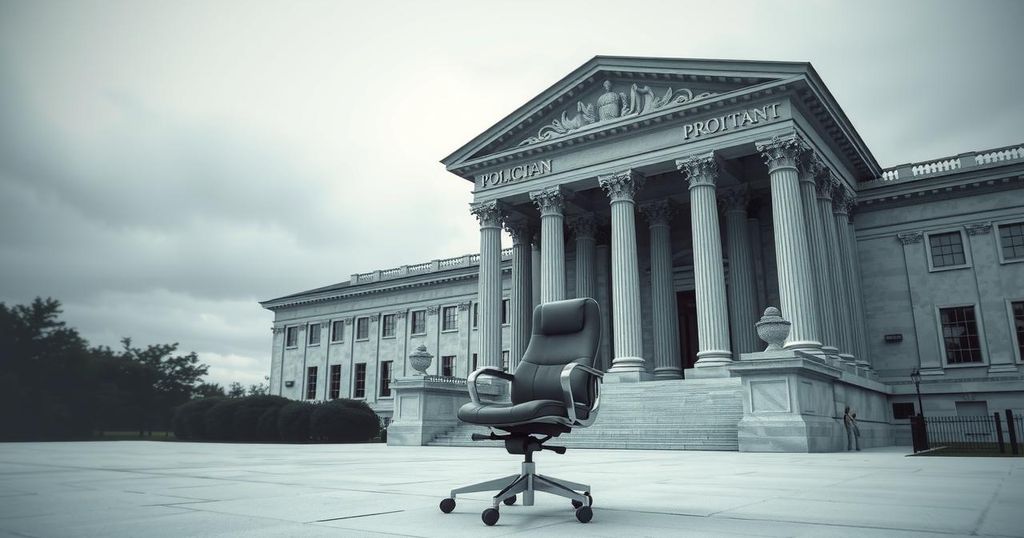South Sudan’s President Salva Kiir has dismissed two vice-presidents and the spy chief, revealing instability within the nation’s leadership. James Wani Igga and Hussein Abdelbagi Akol were removed, with Akol transitioning into a ministerial role. Benjamin Bol Mel replaces Igga as vice-president. The country has not held elections since independence in 2011, now postponed until December 2026.
South Sudan’s President Salva Kiir has recently dismissed two vice-presidents, along with the country’s spy chief and several other senior officials. This decision was revealed through a series of presidential decrees broadcasted on state media, although no reasons for these significant changes have been provided. Currently, South Sudan has a total of five vice-presidents as stipulated by a 2018 peace agreement aimed at resolving the civil conflict in the nation.
The ousted vice-presidents included James Wani Igga, a long-serving politician and general who had held his position since 2013, and Hussein Abdelbagi Akol, affiliated with the opposition alliance, South Sudan Opposition Alliance (SSOA). Akol has now been appointed as the minister for agriculture, taking over from Josephine Joseph Lagu, who transitions into a vice-presidential role.
Benjamin Bol Mel, who faced US sanctions in 2017 due to alleged corruption, has been named as Igga’s replacement as vice-president. Previously, Mel served as a special presidential envoy for various programs, and there has been speculation regarding his possible succession of President Kiir. Additionally, the president has not yet appointed replacements for the health minister or the governor of Western Equatoria, both members of Machar’s party.
The recently sacked spy chief, Akec Tong Aleu, had only been in office for four months at the time of his dismissal. As per the 2018 peace agreement, President Kiir holds the authority to appoint and remove officials at both the national and state levels, although he requires consent from political party leaders for individuals from parties other than his own.
Notably, South Sudan has not held a national election since achieving independence in 2011. The first scheduled vote was proposed for 2015 but was canceled due to escalating conflict. Subsequent attempts to arrange elections were made for 2022 but were postponed, with the latest announcement indicating that nationwide elections are now anticipated to occur in December 2026.
In summary, President Salva Kiir’s recent decision to dismiss two vice-presidents and the spy chief marks a significant political shift in South Sudan. This action highlights the ongoing instability within South Sudan’s leadership and the complexities surrounding the 2018 peace agreement. Additionally, the postponement of elections until December 2026 continues to delay democratic processes in the nation, raising concerns about the future governance and stability of South Sudan.
Original Source: www.bbc.com




